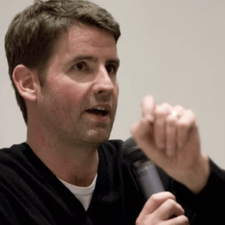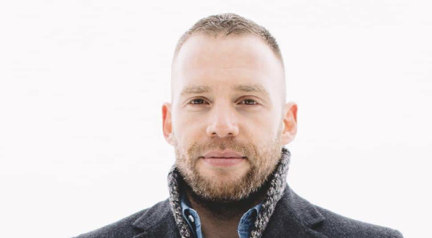
7 Experts Predict the Future of Social Media in 2030
7 Experts Predict the Future of Social Media in 2030: Their Predictions Will Stun You
Once upon a time, our world didn't revolve around Facebook, Twitter, and Instagram. We didn't have anything like an app that lets us show the world what we've been up to. We lived our lives without seeking validation from others online. There were no status updates, Stories, or reels to encapsulate our lives' most significant highlights.
Even when we needed to get news updates, we relied on traditional outlets like newspapers, magazines, online blogs, radio, and TV channels.
As for our entertainment, there were no shortages of fun-filled activities to keep everyone engaged.
We were all happy and pleased with the lives we had.
Do you want to be successful on TikTok in 2023? All you have to do is to buy TikTok likes.
At least we were until February 2004 when a sure nobody from his Harvard dorm room decided to take exception to our ways of lives. Mark Zuckerberg came up with Facebook, and bang, our lives changed forever.
Ever since Mark's Facebook's success, our world has been flooded with many more successful social media channels.
Social media has taken over so much that not having a social media handle in today's world is perceived as old-fashioned.
I'm sure even you have some social apps installed on your phone. If not Twitter, it would be Instagram. Oh, and let's not forget others like Pinterest, Reddit, Discord, WeChat, and the fast-rising Tik Tok.
Social media is here to stay, but what does the future hold?
Looking at the successes that social media have enjoyed until now, it's safe to assume it is here to stay.
My view: I can't even picture a world without Instagram, Tumblr, or Whatsapp. I really cannot.
But what does the future holds? Honestly speaking, nobody can tell. We've already seen so much evolution with social media to know that the sky is indeed the limit.
When Facebook first launched, who would have thought it would become a robust marketing platform one day? Or Instagram; who could have pictured the platform would one day become a marketplace. Oh, and there is Twitter, our most prominent social channel for breaking news.
Ever since its inception, social media has continued to wow us with lots and lots of innovations. So, it may be hard to tell this might or might not happen in ten years.
To get a much better idea, CNBC asked some social media experts what their views are on the future of social media. And this is what they had to say:
1. Executive Creative Director and Co-Founder at Refinery29

Image Source: Gettyimages
"I think that anything we talk about in 25 years is going to sound like science fiction. Mobile is the first step toward the portable future of social media and how we consume it, and I think wearables will be a big part of that. I can see it evolving into an implanted device in our bodies that will connect to everything around us. I know that sounds crazy, but what we see now in the industry is at the tip of the iceberg to share our personal experiences. I think you'll be able to share a taste, a sensation, and a smell. I think a shared consciousness and a version of telepathic communication is all very likely. It may sound a little loopy, but, hey, Neuromancer is one of my favorite books, and I've enthusiastically been to a Star Trek convention—so, yeah.
We already see increased personalization, individual-to-individual communication, more humanlike algorithms, and more specified, diverse social platforms. I think those trends will continue in the future. I see more of a divide happening between socializing and publishing via social media, and platforms like Facebook that merge the two will probably need to pick a lane and change significantly."
In the words of Piera Gelardi, social media will one day reach a point where we can exchange real-time emotions with others, just like we exchange chats and messages. Wow, that would be awesome. Imagine being able to feel your lover's kisses or the warmth of your partner's hug via a social app.
With the mention of chip implantation, I honestly believe in Piera's future social media feasibility.
Cory Bergman, BreakingNews Co-Founder

Image Source: journalists.org
"When news breaks in the future, it will be covered by a multitude of eyewitnesses streaming live video. These streams will knit together into a single immersive video, enabling the viewer to experience the event in real-time virtually. For better or worse, the world will feel like it's right around the corner."
According to Cory, in years to come, social media will become man's biggest and most trusted information source because people will be able to capture and share real-time events to all corners of the world.
Honestly, I think we've already started seeing that. Remember George Floyd's "Black Lives Matter" incident?
Jason Stein, Laundry Service Founder & President

Image Source: Adweek
"All I do all week is look at my phone, reading articles, liking posts, sending emails/tweets/messages. In the future, I will "disconnect" by putting on Oculus virtual reality glasses when I get home—and suddenly, I'll be sitting courtside at the Knicks game with my Facebook friends. You can't make it to the beach in Italy on Tuesday night after a hard day of work, but you can achieve a very similar emotional effect of being there via Oculus glasses while on your terrace with a glass of wine. VR helps you disconnect by putting you in a new, fully immersive world. It will transform every industry—concerts, sporting events, education, tourism, travel, business meetings, doctor appointments, and more.
Jason Stein is picturing a social media world that has gone fully VR. In this world, we won't be watching others' lifestyles by merely staring at videos; we'll immerse ourselves in the environment of that person, feeling exactly what they're feeling.
Imagine being able to virtually appear at a Facebook meetup with your friends in Ontario even though you're presently on your porch in Nevada.
Or, instead of visiting your doc for your checkup appointment, you can immerse yourself in his office by connecting with his Zoom or Facebook channel using your Oculus lenses.
Jeremy Goldman, founder, and CEO – Firebrand Group

Image Source: Twitter
"Twenty-five years from now, how we both input and observe media will have completely shifted. Keyboards on desktops, laptops, tablets, and smartphones will become increasingly irrelevant, as interactions on what was once called social media will largely be voice-controlled. Holographic displays will be shifting into the mainstream, making the debate between the benefits of a 4-inch vs. a 4.7-inch smartphone display a thing of the past."
Jeremy is mostly looking at a social media world where we no longer have to type to communicate with others.
Before catching Jeremy Goldman's interview, I had once imagined a world where I could chat with my friends on Facebook and Whatsapp without necessarily typing. I speak to my phone, and the system does the speech to text conversions.
I know we currently have some speech to text systems in our age today, but none of those have yet made their way into social media. Very soon, we will have them dominating social media, just the way Jeremy has predicted.
Sarah Green, Harvard Business Review, Senior Associate Editor and Host of HBR Ideacast

Image Source: Twitter
“I bet that social will be less about standalone apps and websites and more about the "piping" of the Internet. In the future, the Internet will operate more like electricity does today, as an unseen part of the infrastructure around us that we notice only when it's not present. This will put more pressure on advertisers, marketers, and big thinkers to spread their messages in a genuinely exciting and useful way since they'll be less able to rely on interruptive display ads to get people's attention. But the same trend will also allow these same people to precisely target the exact niche they're speaking to."
Sarah Green envisages a social media world where social apps and websites are part and parcel of the overall internet community. That is, instead of what we have at the moment where social media channels exist differently from blog channels, e-commerce channels, fashion and lifestyle channels, sports channels, and the likes. Everything will live together.
More like having a fashion system that comprises fashion blogs, fashion forums, fashion social channels, etc.
Matthew Knell, VP Social Media & Community - About.com

Image Source: Twitter
"The term social media will fade out and become a mass media form in 25 years. By then, there will be three significant trends:
There will be more personal ownership of data.
Individuals will be able to manage data across platforms in a more centralized way.
There will be extremely speedy mobile wireless broadband built into even the most affordable devices to allow one-touch and instant playback of any piece of content."
In the social media world that Mathew Knell is envisaging, people will not just be using platforms like Instagram to post pictures or Twitter to tweet news; there will be a more generalized usage for any data we post or create. And those data will be more readily and easily accessible by everyone.
Melody Kramer, NPR Digital Strategist and Editor at NPR

Image Source: Nfcb.org
"I'm pretty sure every time Apple's designers want to come up with a new product, they go into a room and watch Inspector Gadget. The 80's cartoon, as you might recall, featured the eponymous detective solving case after case with the help of his tech-savvy niece Penny, who seemingly lugged around early versions of both an iPad and an iWatch.
But Gadget's real skill came from his endless collection of wearables. He had everything from a helicopter built into his head to roller skates melded into his feet. They were as much a part of Gadget as his floppy hat or his overcoat—they felt like natural extensions of the man himself.
That's mostly how I envision social media in the future. It will become part of our clothes' fabric, part of the glasses we wear and the shoes we put on, and the gadgets we no longer see as gadgets but as part of our very selves. Social will measure, but sharing will become more passive in the process; it won't require any effort to share any part of our lives.
I say this knowing full well that to me, this future is horrifying. It sounds more like an episode of "The Twilight Zone" than one of Inspector Gadget, and I hope it doesn't come true. But as gadgets get smaller and we become more comfortable with quantifying more of ourselves, I suspect people like me will fade away, or at least be whispering, "Go, go gadget anonymity."
Melody Kramer is envisioning a social media world where people send messages by literally staring at their mobile phones, where lovers exchange emotions by directly tapping on their wristwatches, and where people get notifications on their eyeglasses.
Conclusion
As exciting as these predictions may sound, no one really knows whether they’ll ever come to life or not. We know for sure that social media will not be the same in ten years.
Maybe by then, we won’t be Facebooking, Tweeting, and Instagramming on smartphones anymore. Or perhaps there will be special devices designed for social media.
Only time will tell.
Until then, let’s keep our fingers crossed!